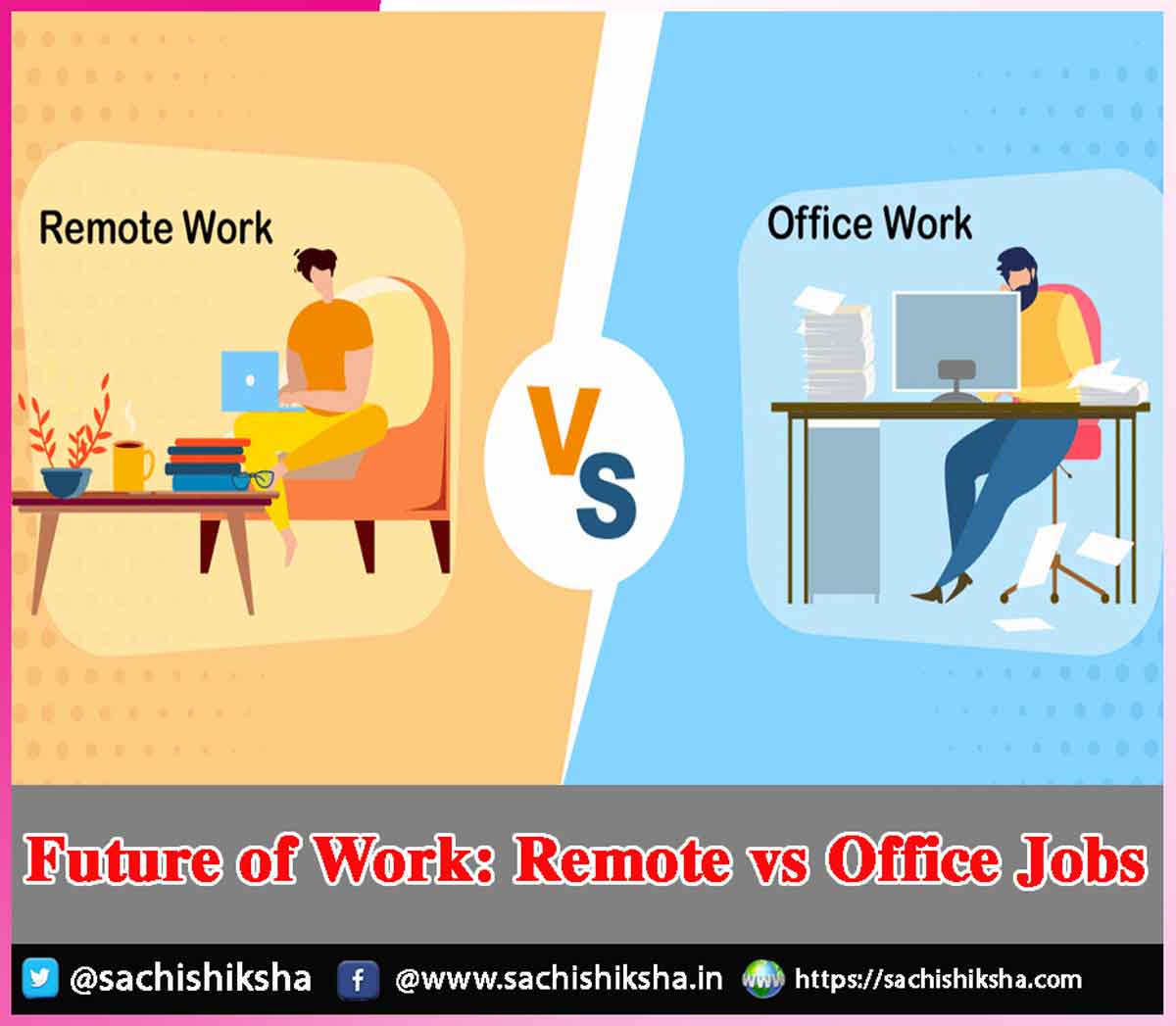Future of Work: Remote vs Office Jobs
Introduction: The landscape of work has undergone a massive transformation in recent years, driven largely by technological advancements, globalization, and the unprecedented impact of the COVID-19 pandemic
Table of Contents
The Rise of Remote Work
Digital tools like video conferencing, project management software, and cloud-based platforms enabled employees to collaborate effectively from anywhere. Companies discovered that productivity did not necessarily decline when employees worked from home; in many cases, it even improved.

The Resilience of Office Work
Despite the rise of remote work, office jobs remain integral to many industries. The office environment fosters face-to-face collaboration, spontaneous brainstorming, and a stronger sense of team culture. Certain sectors—such as manufacturing, healthcare, and laboratory-based research—still require physical presence to function effectively.
For employers, office spaces provide a controlled setting for productivity, immediate access to resources, and opportunities for mentoring and professional development. Many employees also value the social connections and networking opportunities that come from working in a shared space.
Hybrid: The Emerging Middle Ground
The probable future of employment appears to be moving towards a hybrid system that takes the most advantageous aspect of both approaches. Employees might work remotely for part of the week and spend the remaining days in the office. This arrangement allows organizations to maintain collaboration while granting employees the flexibility they desire.
Hybrid work also addresses challenges faced by both models. For example, remote work can lead to isolation and blurred boundaries between professional and personal life, while full-time office work may result in rigid schedules and long commutes. By blending the two, companies can create an adaptable system that meets diverse needs.
Challenges Ahead
Both remote and office work face unique challenges in the future. Remote work raises concerns about cyber security, data privacy, and employee engagement. Without regular in-person interaction, some employees may feel disconnected from their team or miss out on career advancement opportunities due to reduced visibility.
On the other hand, office work must contend with evolving employee expectations. Many workers now prioritize flexibility and may be reluctant to return to rigid schedules.
Technology’s Role in Shaping the Future
Advancements in technology will continue to redefine work models. Artificial intelligence, automation, and virtual reality are likely to enhance remote collaboration and make virtual offices more immersive. Tools that track productivity without micromanaging employees will support remote environments.
Conclusion
The debate between remote and office jobs is not about one replacing the other, but about finding a sustainable balance that meets the needs of both employers and employees. The next phase of work is about flexibility, diversity, and utilizing innovation to create productive, rewarding environments. As businesses evolve, the ability to adapt to changing work models will determine who thrives in this new era.















































